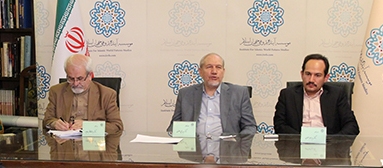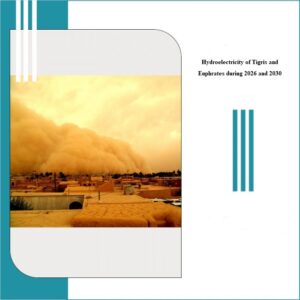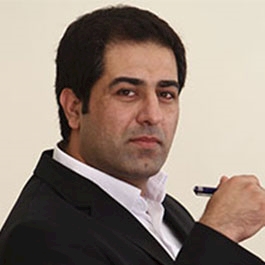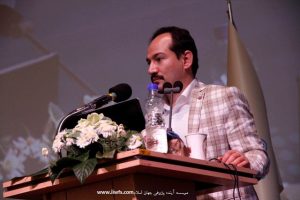Analysis of confrontation between strategies in West Asia and the Impact of Iran’s geopolitical weight on the relations between the countries in the region
Let me answer the two questions together. Your question is actually about the region and Iran. The first and the main question discusses the issue of divergences in the region and the second question discusses the situation of Iran in the region focusing on Iran’s relation with other countries of the region. In order to answer your questions, I will explain three points.
First, we should clear the meaning of the word “Region” which means the countries and zones around Iran; in which the developments of western edge of Iran in Arab world have greater significance. Second, we discuss how the situation of Iran in the region is and third, which challenges exist on the matter of obligations and interpretations of Iran’s situation or the region’s desired order.
On one hand, having an image of the region, we can say that the regions around Iran especially Arabic countries have been experiencing major changes. I call these changes as “Strategic Molting”; meaning that, this region is changing strategically. But “Why” is it changing? Because the players are changing. New players have emerged. Old players still exist but the game nature is changing; and according to actors’ situation, it’s obvious that concurrent with the hundredth anniversary of the signing the famous Sykes-Picot agreement, the order resulting this agreement has been harmed seriously. The second point is that some various phenomena have occurred simultaneously in the region: first that Arabic order has broken; meaning that what really exist as Arabic order strategically has broken. Arabs (Arabic players) used to have some frames among themselves. By Saddam mistakes in invasion to Iran and subsequently to Kuwait and the exit of Iraq from the Arab world’s influencing orbit and by developments started by Tunisia during the last five years and after that, Arabic order has changed and now, three or four of major Arab players have no major role in regional developments any longer; Iraq is one of them, Syria was an important country influencing outside its border; and Egypt as the most important of all, involved in civil war.
On the other hand, the acts of trans-regional powers have also evolved. All trans-regional actors do exist but the nature of their conflicts are now different by type. Obama’s state has one kind of attitude to this region and Sarkozy’s France and England have different ones. According to acts of trans-regional powers, we can conclude that due to many emerged doubts about the priority of this region in wasting money and troops after military occupation of Afghanistan and Iraq, they now have some considerations and concerns in their military expenses. However, the new America’s policy known as pivot from Middle East and Europe and pivot to Asia –even used verbally- has caused a change and that’s why it is considered as an important phenomenon.
Another phenomenon is the increasing role of regional powers. Regional powers such as Iran, turkey, Saudi Arabia in today’s world across the globe are more effective than in the past. Brazil or Mexico have the same effectiveness in Latin America. In Africa, South Africa has got more opportunities to act. These two problems namely “strategic molting” and the above mentioned phenomena have shaped a phenomenon which is related to us and we must mention it as the “rise of Iran” in the region. As one of the features of this situation, Iran has risen as a power and as an effective regional player. Iran has passed the crises which other countries are facing, and is moving forward. The situation of Iran has made it as a different and distinguished power in the region.
Let’s talk about Iran more openly. Why Iran has raised? And what’s the meaning of this term and its consequences and challenges? First, Iran has risen and its power has increased in the region due to three factors: Primarily there are intrinsic aspects that can be pointed to the geopolitical importance of Iran and the region. In the sense that Iran’s geographical and geopolitical factor in itself, as well as a variety of human and non-human resources have turned Iran to a larger and more prominent country in the region. But what is important and less noted on analysis, especially outside of Iran and sometimes inside is the acquired aspects of Iran’s power; meaning that Iran in 37 years since the revolution has domestically acquired some aspects of power; which in my idea it’s not only in one area, either hardware or software. Imagine that Iran has managed to create political institutions such as parliament, or to hold elections and dozens of other factors which can empower Iran; the same thing has happened economically. Iran is the only country in the region that can provide its security by itself and doesn’t acquire its security from others. All of these factors are effective. In addition, well-experiencing in decision making especially in pivotal crises, has helped Iran in this regard. Iran has passed several crises in the region with right decisions. In my point of view, many international crises related to Afghanistan and Iraq and also current crises and other aspects related to decision making are the factors of Iran’s acquired power. Even Iran’s negotiating capacity, negotiating by itself and independently in different areas, are of major importance.
The third element that has highlighted Iran actually is the collapse of strategic systems. For example, collapse of the Soviet Union in 1990 was a great strategic transformation and opened the space for Iran. The collapse of the Baath regime in Iraq as a key factor, the collapse of the Taliban regime and in my point of view more recently the fall of a part of Arab world especially Mubarak’s regime was very important. Mubarak regime in Egypt moved steadily to undermine Iran situation in the past thirty years and was the flag bearer of anti- Iran movements in Arab world and had the ability to turn the investment of Persian Gulf countries into international negotiations. All these elements led to the rise of Iran and changed it to a stable and peaceful country that can resolve its problems by itself. I think moving forward accurately and making use of present economic frameworks in the form of resistance economy which diminishes the effects of the world economic shocks, can be effective in the rise of Iran. The rise of Iran has provided a situation to our country that can be said it is a capacity for the region’s security. However, there are challenges, whether challenges resulting out of domestic expectations or regional challenges which must be considered. Calling Iran as a power in the region, doesn’t mean that everything is perfect and complete; world powers like China, as a power on a global scale, also faces tens and hundreds of issues.
Some challenges have been made by the rise of Iran and passing the nuclear crisis that has made Iran as an international security concern; including a sense that Iran is in a dominant position and the need to control it has created primarily by Saudi Arabia. It seems that the rise of Iran has caused resentments for Saudi Arabia and Zionist regime and some other countries and somehow they want to focus on controlling Iran. The issue has created challenges even outside the region. Now one of the main issues in the region is that a power like Iran which can make stability in the region is considered as a regional threat by some countries, including Israel and Saudi Arabia which are in one side. However, this seems irony, but is one of the realities which is resulted from the rise of Iran and they think they must control it together or by using other forces. It seems that in past, the strategy of these two regional players, Zionist regime and Saudi Arabia, was to make tension and military conflict between Iran and America. The nuclear issue was an excuse to worsen the conditions for the use of military power. WikiLeaks documents prove that Saudi Arabia has asked Americans clearly to behead this dragon, but since their pressures failed and nuclear talks advanced, it seems that instead of involving world powers with Iran, they have entered in a more direct field called proxy war.
The last issue will be on attitudes or narratives we are facing in the region. First, Iran is a major part of the each narrative. There is a classic western narrative which says what should be the order that traditionally base on the control of Iran after the revolution. There is a Saudi narrative that describes Iran in a way that makes Saudi Arabia to do things that hasn’t done in the last 37 years. Saudi goes to Latin America, Africa and prevents them from having relation with Iran. Also there is or was a Turkish narrative that some call it as Ottoman or Muslim Brotherhood narrative. The cases of Syria also were bases of a new narrative which believed in omission of Iran from Levant.
It seems another view which can be studied is the Russian version that after a twenty years’ period turned into a strategic mobility in the region, illustrated in the case of Syria, but not limited to it. As you can see Russia has extended its relation with Iran and Arabic countries and also developed its military relations with Saudi Arabia and Egypt. Russian have a good relation with Israel and some believe that they use the lack of mobility in Western players who suffer many reasons; because Europe and America have their own problems. What and how the Russian narrative is, it isn’t clear and precise enough and cannot be ignored.
There is Chinese narrative of this region which is proposing very calm and smooth. The base of Chinese narrative is in the form of a way, called “One belt one way”; i.e. the line known as the Silk Road which passes the region and joints china to Europe via two sea and land paths. Chinese narrative tries to wrap its economic narrative but it might be possible to say that somehow it involves two factors like the Russians: one is the consideration of economic aspects of the region and the other is the filling of a gap which is being created in the region. Whatever it is, totally the conditions are crucial regionally and the situation of Iran is unique. Maintaining our conditions and current achievements is another key point for which, we are all responsible. First we must realize how the conditions are and we should really preserve the country’s achievements which are the result of years of resistance and work in the region where it is possible in every moment to face a new crisis. One aspect of this issue is scientific aspect, in the sense that the scientific aspect of understanding these changes and how these actors are and providing analysis of key concepts of these issues are vital. I’m glad that your institute is doing this.
At the end, something that has made my mind busy since a month is the image of the region described in the first part and any way is a confusing image. “Strategic molting” means that there are no previous frames. One question is that whether this confusion is with the program or has happened accidentally; i.e. whether strategic plans have led to these conditions or not. We were discussing with a group of Indian researchers a month ago and a leading Indian researcher in that meeting pointed to a paper which was written in 1982 by Yinon who is a Zionists. This paper which was written before the collapse of the Soviet Union, pointed out that the Balkanization of the Middle East goes forward and it showed that there are at least the dreams of Balkanization in the region. Hence, I say this because we must not think that the maintenance of our current situation is an easy thing, buy there are tens of planning, programs, conversation, dialogue and narration in the meantime which makes the consideration of our country and its achievements require the monitoring of concepts and specifying their relationship to Iran and mutually comprehensive designs in relation with each of them.





